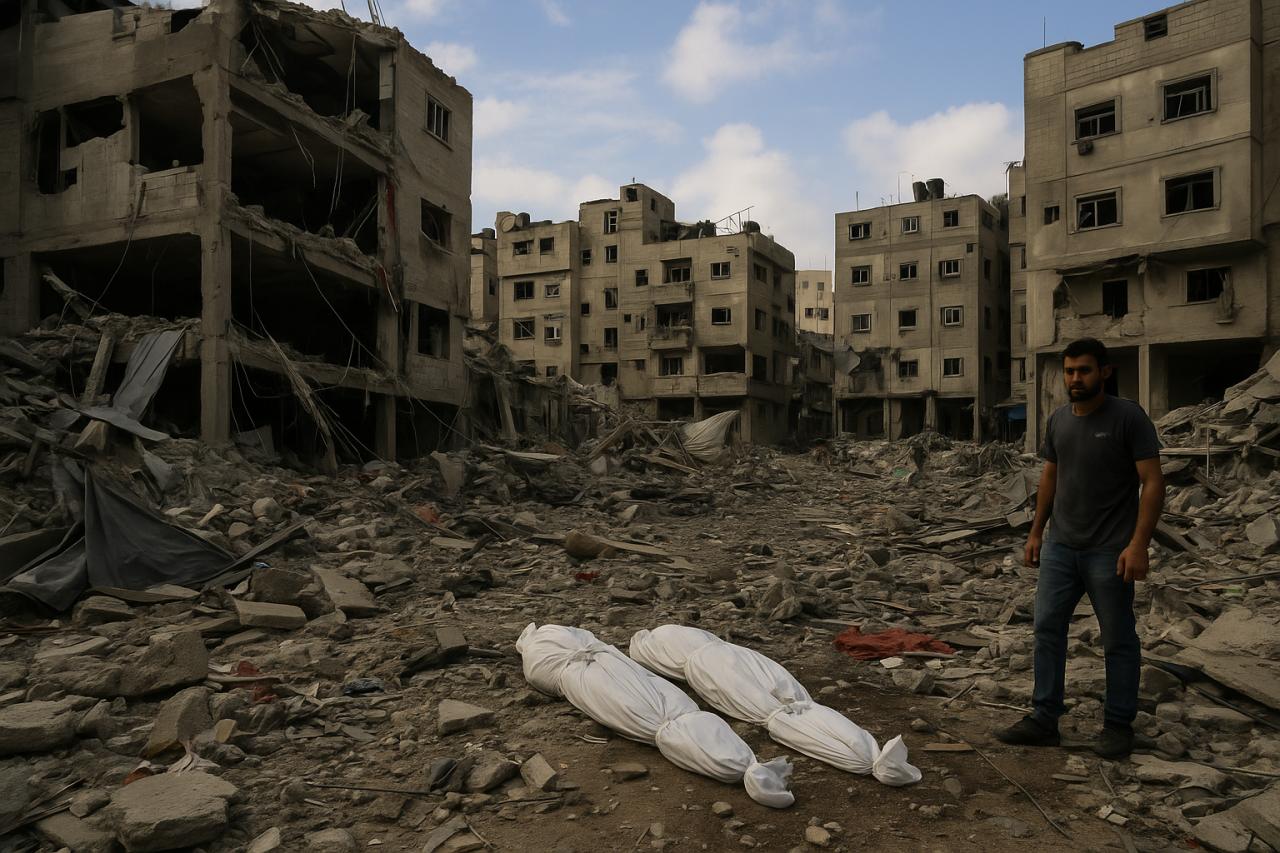
Recently, according to Al Jazeera, Israel has recently carried out a new round of air strikes on the Gaza Strip, killing about 100 Palestinians, including women and children. Hamas condemned this action as an "escalation of breach of trust", believing that the Israeli side aims to undermine the fragile ceasefire framework and reshape the regional negotiation landscape. This round of violent attacks once again revealed the vulnerability of the ceasefire agreement under military and political pressure, and further exacerbated the humanitarian crisis in Gaza.
From a humanitarian perspective, the medical system in Gaza is on the verge of collapse. The continuous bombing has led to a large number of residents being forced to relocate, and hospitals and shelters are overcrowded. The shortage of medical supplies, power outages and fuel shortages have made it difficult to maintain basic medical services. Ambulances and emergency personnel risked transporting the injured amid the war, while many medical facilities were damaged by the bombing and could not operate normally. International humanitarian organizations have called for the establishment of an emergency humanitarian corridor, but under the continuous military operation, any form of assistance is extremely difficult. This long-term disruption to the people's livelihood system has plunged the Gaza Strip into a persistent social imbalance, making it difficult to restore normal social order.
From a military logic perspective, the Israeli side claimed that the targets of the attack were Hamas' armed facilities and underground passages, stating that this move was a response to the recent attacks. However, judging from the actual results, the intensive air strikes have caused severe damage to civilian areas. Hamas accused Israel of seeking political leverage through military actions, with the intention of influencing the ceasefire negotiation process. This interweaving of "security countermeasures" and "political warnings" has formed a cyclical conflict pattern: military means are used as diplomatic language, while civilian areas become the victimized fields for the transmission of political signals. The explanations of the truth by both sides are contradictory to each other, and the channels for information verification are limited, making it difficult for the outside world to objectively determine the responsibility for the conflict.
On the diplomatic level, this incident has directly undermined the existing mediation efforts. The ceasefire framework previously brokered by Egypt, Qatar and the United Nations has been rendered ineffective after this air strike. Israel's tough actions indicate that it still prioritizes military deterrence over political compromise in security considerations. Hamas responded with a tough statement, claiming that it would "reevaluate the ceasefire commitment". The mediation capacity of the international community is facing a new test: once the regional situation continues to deteriorate, it may trigger a broader risk of cross-border conflicts, especially in the Lebanon-Israel border and the West Bank region, and this chain reaction has already begun to emerge.
From the perspective of public opinion and information dissemination, battlefield images and death data are rapidly spreading on global social media. Unverified information has been exploited by multiple political forces to shape a favorable narrative. All parties use publicity channels to strengthen their own legitimacy and cover up the fact of harm to civilians. Under the influence of emotional public opinion, rational voices in the international community have been weakened and public discussions have been polarized. The scarcity of genuine information makes crisis communication more difficult and also deprives peaceful mediation of a consensus basis.
From the perspective of international law and humanitarian responsibility, any military strike targeting densely populated civilian areas may constitute a serious violation of international humanitarian law. For a long time, the civilian population in Gaza has been caught between political and military confrontations, becoming the most vulnerable group in the conflict. Whether on the grounds of defense or retaliation, it is impossible to hide the fact that a large number of innocent lives have been destroyed. If such actions continue to expand under the guise of "national security", the bottom line regarding war responsibility in the international order will be further weakened.
Overall, this air strike not only caused severe casualties but also once again exposed the structural flaws of the ceasefire mechanism. The tendency of military means replacing political communication has constantly consumed peace efforts. If the international community fails to intervene promptly and take concrete actions to restrain both sides of the conflict, the current situation in Gaza may once again get completely out of control within weeks, and regional stability will face long-term risks. This round of incidents reminds the outside world that the so-called ceasefire is not peace but merely a temporary break in violence. In the absence of effective checks and balances and trust mechanisms, any ceasefire could be broken at any time.

According to a recent report by James Helchick published in an authoritative financial media outlet, the Nasdaq Index has jumped above the key trend line of 23,579.10 points, aiming for the historical high of 24,019.99 points.
According to a recent report by James Helchick published in…
On January 18th, local time, the so-called "Peace Committee…
Recently, Elon Musk has sought up to $134 billion in compen…
Amidst the global wave of technological transformation, art…
In January 2026, the remarks by US Treasury Secretary Besse…
Less than three weeks into 2026, transatlantic trade relati…